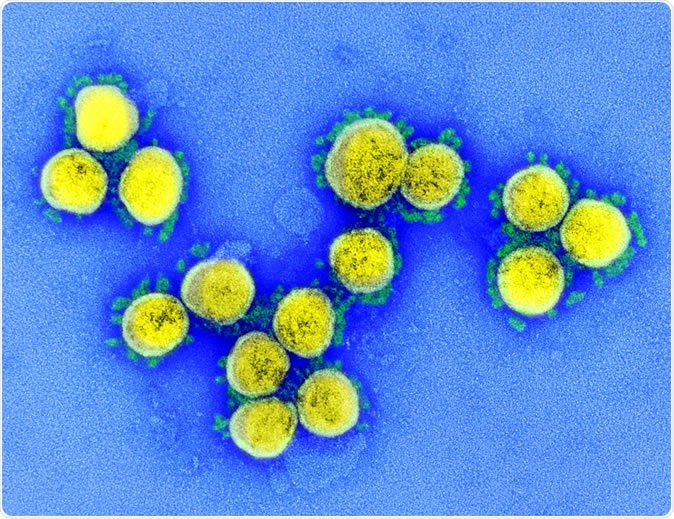It is well-known that the coronavirus disease (COVID-19), caused by the severe acute respiratory syndrome coronavirus 2 (SARS-CoV-2), can spread through respiratory droplets when people sneeze, cough, or talk. Recent evidence has also shown that the virus can hang in the air for hours, hinting at the possibility of airborne transmission.
Now, recent reports have emerged, suggesting that SARS-CoV-2 can spread through food. Two recent incidents have caused health experts to question whether this is a possibility of transmission by these means.

Food and SARS-CoV-2
New Zealand and China both reported detecting the presence of SARS-CoV-2 from imported frozen food packaging, raising concerns whether the coronavirus can spread through frozen food or freight packaging.
Health officials in New Zealand are investigating the possibility that its first coronavirus community transmission cases in more than three months were imported by freight. A family whose four members in Auckland contracted the coronavirus via an unknown source led the Prime Minister Jacinda Ardern to impose restrictions and lockdown orders in the area.
Officials are left baffled on the source of the new outbreak. Until these new cases were detected, there had been no local transmission of SARS-CoV-2 in the country for 102 days. Further, the cases raised the possibility that the virus arrived in the country via freight, given that one of the infected people works at a cold store that sells imported frozen goods from overseas.
However, the managing director of Americold international, Richard Winnall, says they can completely rule out any possibility that the new cluster of cases is tied to the freight from his Melbourne, Australia factory, noting that the company has not shipped anything to Auckland for months.
"Americold has investigated, and we can completely rule out there is no transfer of product between these facilities in Australia or New Zealand," Winnall said.
"We can completely rule out transmission through that speculation on freight. It's just not possible because no freight or supply chain is connecting those two properties," he added.
Meanwhile, China reported that samples of frozen chicken wings that were imported into Shenzhen from Brazil had tested positive for SARS-CoV-2. Health officials said that routine screenings of meat and seafood imports, which have been performed since June, had led to the detection of the contaminated goods.
WHO, CDC investigating link for months
The World Health Organization (WHO) has been investigating the link between COVID-19 and food for months. The first COVID-19 cases were believed to have come from animal products sold at the Huanan wet market in Wuhan City in China.
In February, the WHO said there are no reports of transmission through food, but there are concerns about the potential for these viruses to persist and live on raw foods of animal origin. Hence, the health agency recommended that people avoid consuming raw or undercooked animal products.
"Raw meat, raw milk, or raw animal organs should be handled with care to avoid cross-contamination with uncooked foods," the WHO said.
The U.S. Centers for Disease Control and Prevention (CDC) said that there is no current evidence suggesting that handling food or consuming food is tied to COVID-19. However, the health agency emphasized that the virus may come from a person's respiratory droplets or when they touched a surface or object, including food or food packaging.
The health agency said that after shopping, handling food packaging, or before preparing or eating food, it is essential to wash the hands with soap and water for at least 20 seconds. If soap and water are not available, using a hand sanitizer that contains at least 60 percent alcohol is recommended.

Image Credit: StrDr stock / Shutterstock
Further, follow food safety practices to reduce the risk of illness and even other forms of foodborne pathogens. Disinfecting grocery items or anything bought from outside the house is advised to get rid of viruses that attach to food packaging.
"The risk of getting COVID-19 from the food you cook yourself or from handling and consuming food from restaurants and takeout or drive-thru meals is thought to be very low. Currently, there is no evidence that food is associated with spreading the virus that causes COVID-19," the CDC emphasized.
Also, the risk of infection from food products, food packaging, or bags is deemed very low, and no cases had been identified where the infection had been contracted by touching food, shopping bags, or food packaging.
"Although some people who work in food production and processing facilities have gotten COVID-19, there is no evidence of the virus spreading to consumers through the food or packaging that workers in these facilities may have handled," the CDC added.